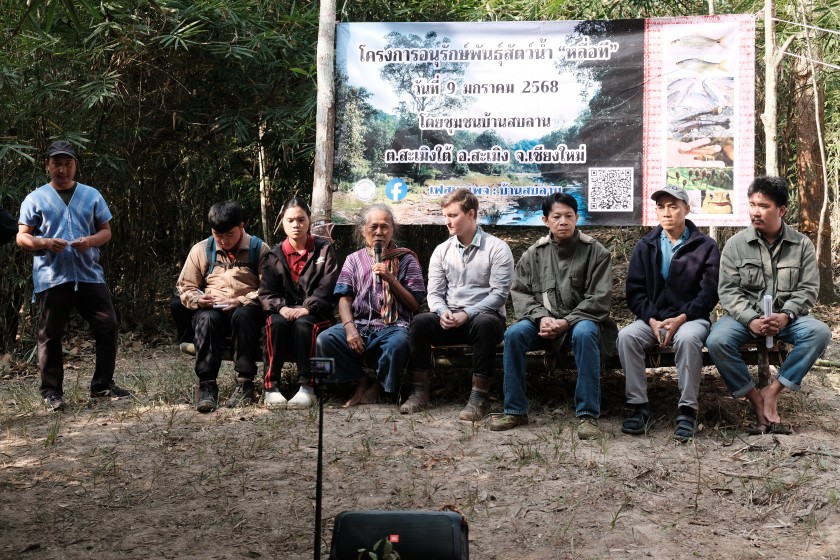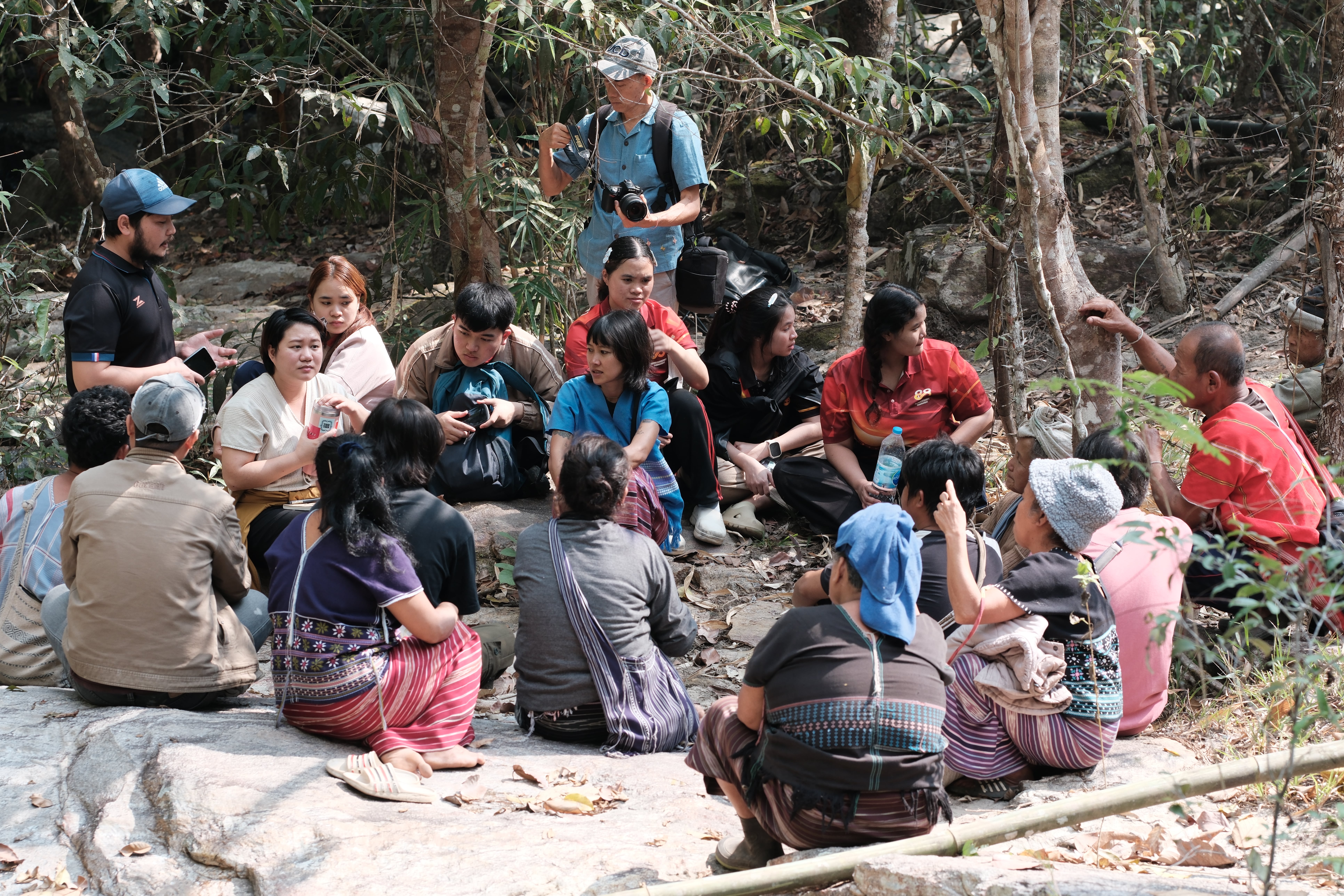A group photograph of attendees of the Lue Thee ceremony in Sop Lan village in January 2025. [Inthanon Sutjathammawong]
On a misty morning at the turn of the year, 50 people gathered at the edges of Sop Lan village to pay respect to the Karen water deity (led by Sop Lan spiritual leader Mr Pati Tayea Yodchatmungboon) and emphasise their collective interest in forest-related issues. The attendees of the ceremony comprised members and leaders of Soblan village, local government representatives, national park officers, scholars, human rights activists, students, and media professionals. During the half-day event situated in a lush forest area at Mae Lan River, the participants also shared knowledge about the experiences and cultural practices of the community, discussed local research activities, and shared a traditional Pgaz K’ Nyau meal.
Several panelists discussed at the gathering current challenges and opportunities experienced by Sop Lan village. Among them was Mr Wisarut Srichan, Representative of the People’s Movement for a Just Society (PMOVE), who outlined the history of struggles of the Sop Lan community under the national forest protection policies as it is situated within the Ob Khan National Park, which has constrained village life, limited cultural expressions, and repeatedly entailed allegations of forest encroachment. District Chief Mr Wirot Duangsuwan stressed the importance of understanding and fostering cultural practices.

Several panelists discussed at the gathering current challenges and opportunities experienced by Sop Lan village [Marco J Haenssgen]
In turn, Mr Nattawat Tiangtrongsakun, Village Head of Sop Lan outlined how the community’s traditional practices such as rotational farming contribute to forest health, while Deputy Mayor of Samoeng Tai Municipality Mr Surasak Nudi stressed that traditional beliefs historically allowed the community to engage in sustainable natural resource management without the need for written laws. Chiang Mai University scholar Assoc Professor Dr Prasit Leepreecha stressed that cultural heritage practices such as the Lue Thee ceremony therefore serve not only to maintain the community’s coexistence with the forest but also to cultivate mutual understanding with forest authorities.
Research student Mr Peter Ducker (University of Guelph, Canada) further highlighted that extensive environmental knowledge and practice is embedded in the village’s cultural heritage. Students from Thammasat University, too, expressed the value of learning about the village’s experiences and legal challenges. Media has a key role to play in engaging not only broader audiences but also local youth with these nuanced issues and perspectives, as Tinaphat Phatrasitthiwat of Pokwa Productions concluded.
The event was partly supported by the British Academy funded research project “Towards Heritage-Sensitive Climate Change Mitigation Policy: Impulses from Indigenous Practice in Thailand” at Chiang Mai University (or, short, “BA Heritage”). This British Academy funded project (grant ref. IOCRG\101013) is hosted by Chiang Mai University and led by Dr Marco J Haenssgen. Operating from June 2024 to March 2026, this project explores the environmental significance of cultural heritage practices in highland communities in Chiang Mai province, as part of which it trials co-developed and heritage-sensitive forest conservation approaches to identify effective mechanisms that can help support the critical role of Indigenous peoples in climate change mitigation in the tropics.
Notes
The project “Towards Heritage-Sensitive Climate Change Mitigation Policy: Impulses from Indigenous Practice in Thailand” (or, short, “BA Heritage”) is a British Academy funded project (grant ref. IOCRG\101013) hosted by Chiang Mai University and led by Dr Marco J Haenssgen. Operating from June 2024 to December 2025, this project trials co-developed and heritage-sensitive forest conservation approaches to identify effective mechanisms that can help support the critical role of Indigenous peoples in climate change mitigation in the tropics.
Contacts:
- Ms Navaporn Sunanlikanon (BA Heritage Project Manager, Chiang Mai University): navaporn_sun@cmu.ac.th
- Dr Marco J Haenssgen (BA Heritage Project Leader, Chiang Mai University): m.haenssgen@outlook.com
www.facebook.com/tcijthai
Tags






